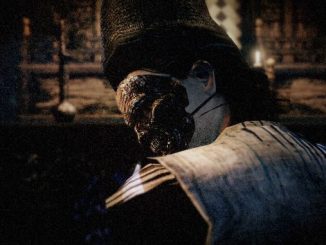Our review of Assassin’s Creed Mirage, developed by Ubisoft Bordeaux. Available now for PS5 (reviewed), PS4, Xbox X/S, Xbox One, and Windows.
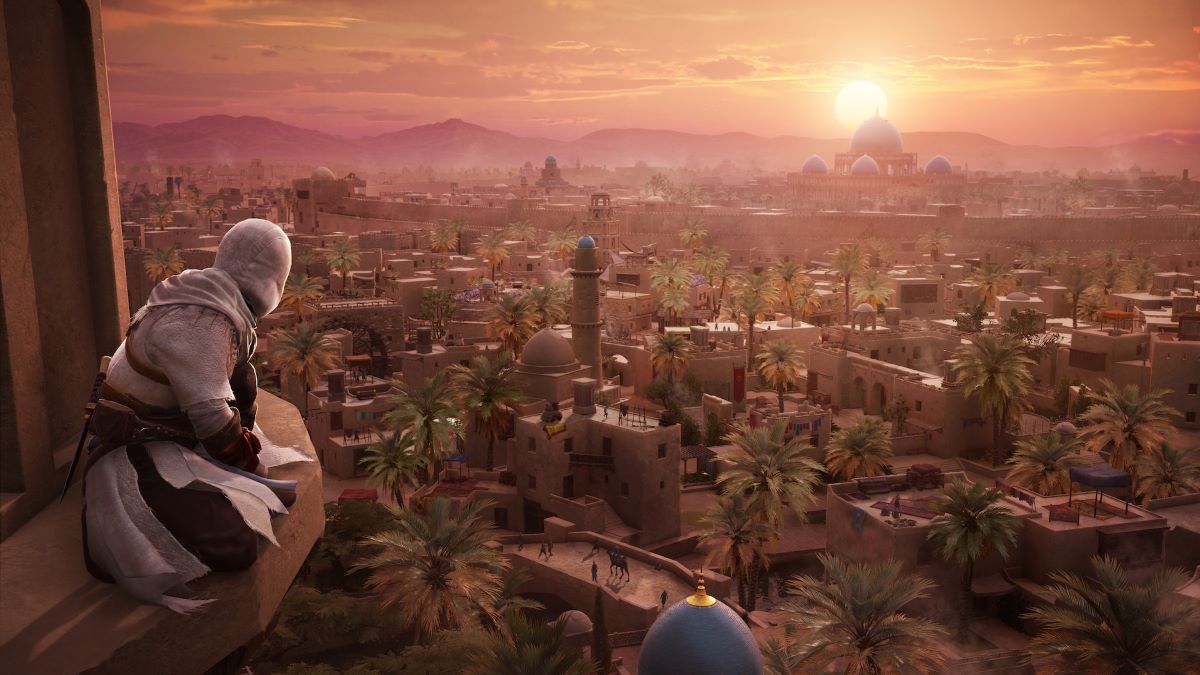
WHAT IS IT?
A return to form for the long-running Assassin’s Creed series.
IS IT GOOD?
It’s an enjoyable romp.
WHO SHOULD PLAY IT?
Aladdin, Abu, Jasmine, and Genie.
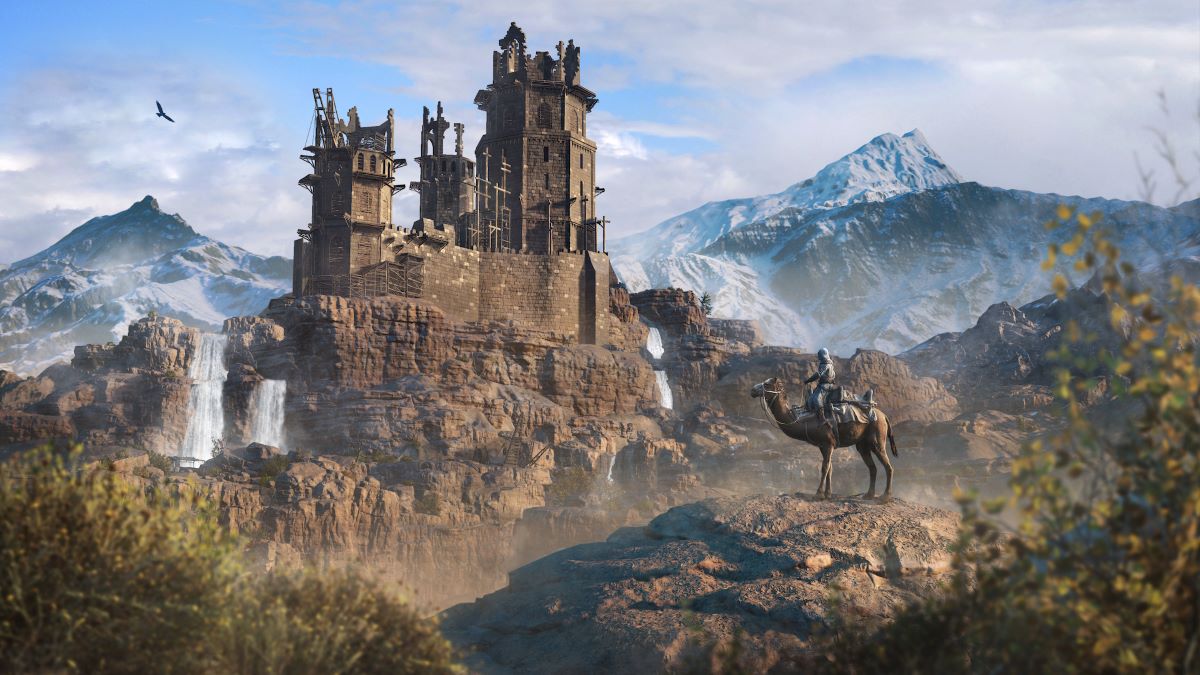
PERFECT STEALTH
Assassin’s Creed II is perfect.
To this day, if there’s an AC game I want to revisit – if there’s an open-world game I want to revisit – there’s a good chance it’s Ezio Auditore’s first adventure, the one that took the strong fundamentals of its predecessor and expanded everything in exciting and memorable ways. Whether it’s parkouring my way across the rooftops and canals of 15th century Venice, or uncovering the hundreds of secrets which tie into the (not-yet-convoluted) AC lore, it’s my favourite game in the series and a strong contender for one of my Top 10 games ever.
I mention all this because the latest entry, AC Mirage, has been billed as a return to ACII-era form, stripping back the clutter of recent entries (no more waypoint indicators crowding up your screen) and placing a renewed emphasis on stealth and thievery. Its protagonist, Basim Ibn Ishaq, is no Ezio Auditore, but he’s a compelling and likeable enough presence – AC Valhalla players will have fond memories of his supporting role there – and a wonderful audience surrogate as the newest recruit to the proto-Assassin group known as the Hidden Ones. While aspects of Mirage might represent too much of a return to form – I’m tired of accidentally jumping off the wrong ledge – on the whole, this Mirage bodes well for the series as a whole.
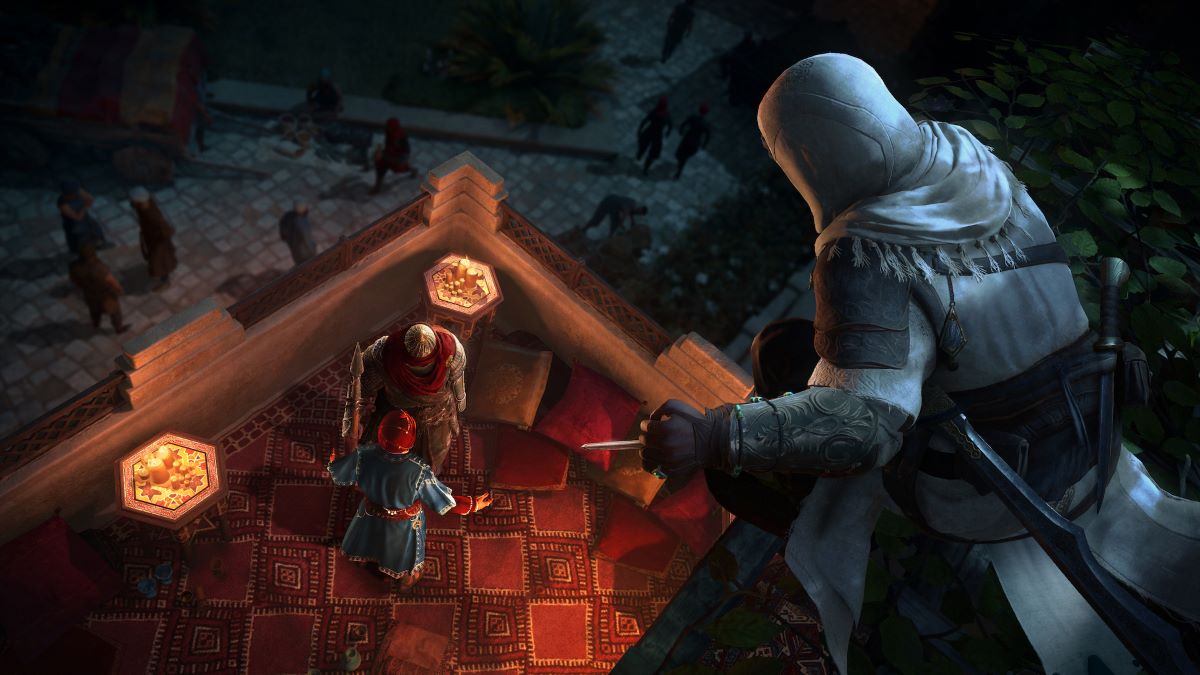
THE HUNT CONTINUES
AC Mirage‘s setting in 9th century CE Baghdad marks a return of sorts to the original AC, with its Middle East setting during the 12th century Crusades. Mirage‘s setting is no coincidence: from the start, this AC is meant to remind you of the very first game, some sixteen(!!) years ago, with its more mechanical parkour system – not all surfaces can be climbed, but you learn to pick them out through subtle environmental indicators – and simple hunt-kill-escape gameplay loop.
And that really is what you’ll be doing throughout your 15-20 hours in AC Mirage: get a new assassination assignment from a quest giver, do some stealthy stalking to gather clues, infiltrate a highly guarded area where your target is well protected, pull off a precision assassination, and then sneak away and blend into the crowd. There is, of course, a story – a rather compelling one at that, featuring beloved film/TV star Shohreh Aghdashloo in a central role – to move you through all this, but at its core, it’s the same template AC set and ACII perfected, and it works well.
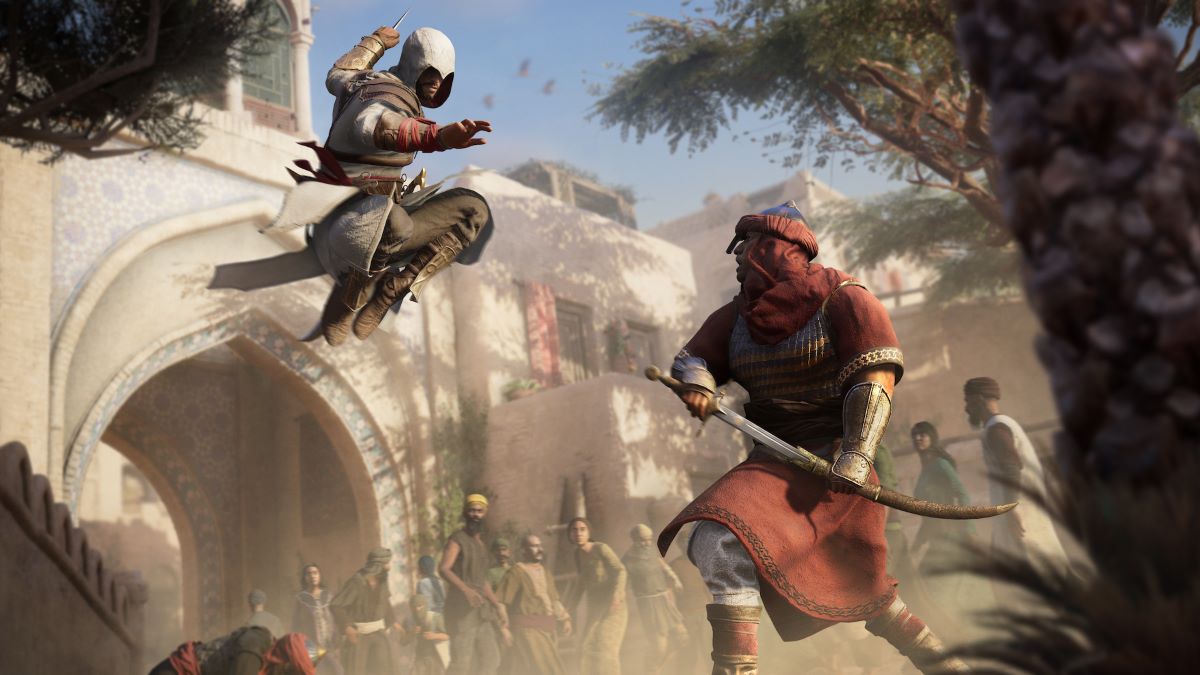
SECRET WARS
Long-time AC players know that one of the series’ most controversial aspects is the (sixteen-year-old spoilers!) fact that basically everything you see is happening inside a highly sophisticated virtual reality device. Previous games leaned heavily into this aspect, regularly pulling players out of the “simulation” (Renaissance Italy, 19th century London, 18th century piracy, etc.) for segments set in a near-future where Assassins and Templars are waging a secret war. Some people hate this lore. Others, like myself, enjoy the brief respites these segments offer in between all the skulking and/or swashbuckling. In any event, Mirage has pretty much done away with this entirely: saving one or two winks at the audience, it’s basically a video game set in the 9th century.
On the other hand, AC Mirage is very much in tune with what players loved about the series before it went extravagantly epic on us in games like Odyssey or Valhalla (which covered the entirety of ancient Greece and ancient Britain, respectively). What that means is a real return to gameplay basics: there’s only one weapon to speak of, you are deliberately limited in combat options so that stealth is always the preferred option, and there are simplified mission structures so you’re never waylaid by tower defence or city building or the copious other activities that had started to bloat AC as the years went on.
On the whole, I like it, though if they can find a way to bring back Black Flag‘s naval combat sequences in the next game, I’m all for it. To this day, Black Flag is the best pirate game I’ve ever played.
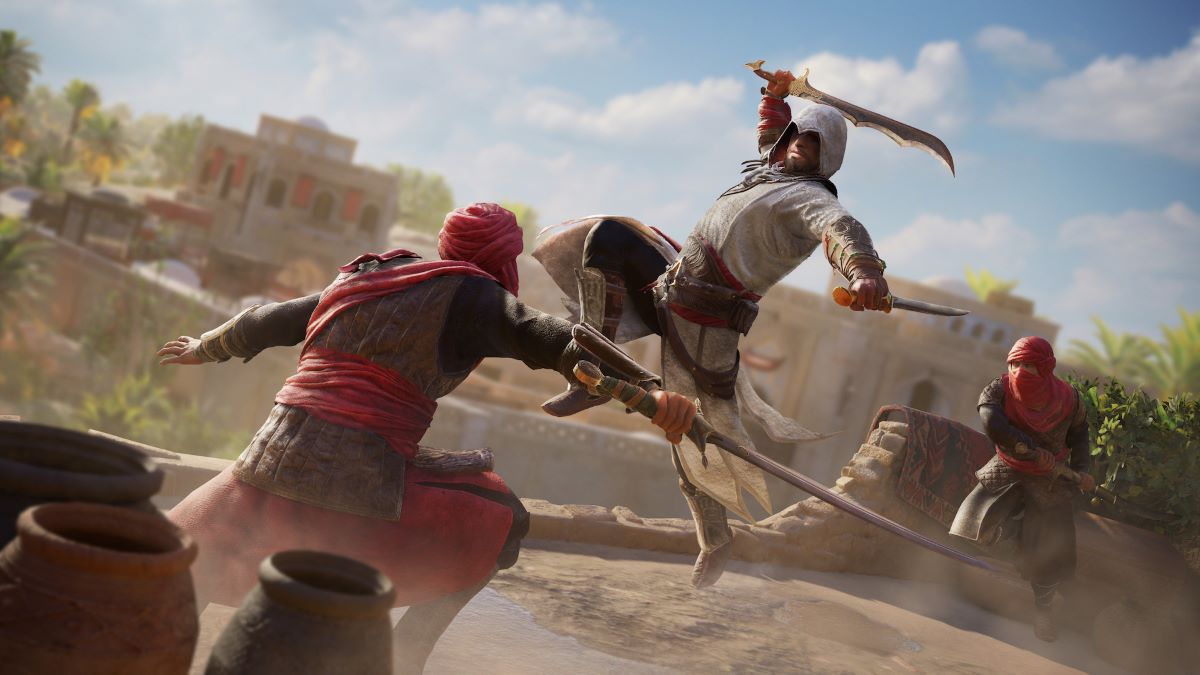
HISTORY LESSON
One unfortunate, if inevitable aspect of situating Mirage so far back in time is that it lacks the spark of familiarity that we got in previous games. Exploring Renaissance Venice in ACII – which more or less looks like 21st century Florence – or the 19th century Paris and London of Unity and Syndicate – where you can easily track down famed cathedrals and museums exactly where you’d spot them today – is always exciting. In comparison, Mirage‘s version of 9th century Baghdad is lovely, but it’s largely an imagined landscape, one based on educated guesses since this version of the city was razed to the ground in the 13th century. Sometimes, that approach pays off – if nothing else, Mirage feels like a celebration of the Golden Age of Islam – but other times, it feels suspiciously generic, like the “Agrabah” of Disney’s Aladdin.
Accurate or not, it’s still fun to wander through. I don’t really mind occasionally jumping the wrong direction if it means I have to be more thoughtful about my environmental interactions. And I don’t really mind dry-rinse-repeat gameplay loops which focus on the essentials of AC and disregard everything else. It’s not exceptional, but Mirage is a case study in getting the fundamentals right. I’m excited to see where the next title – the already announced Japan-set AC Red – will take us next.
***
Final score: 8/10 leaps of faith.
Visit the official website for Assassin’s Creed Mirage here.


